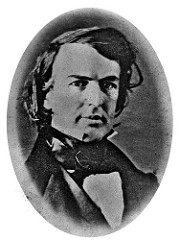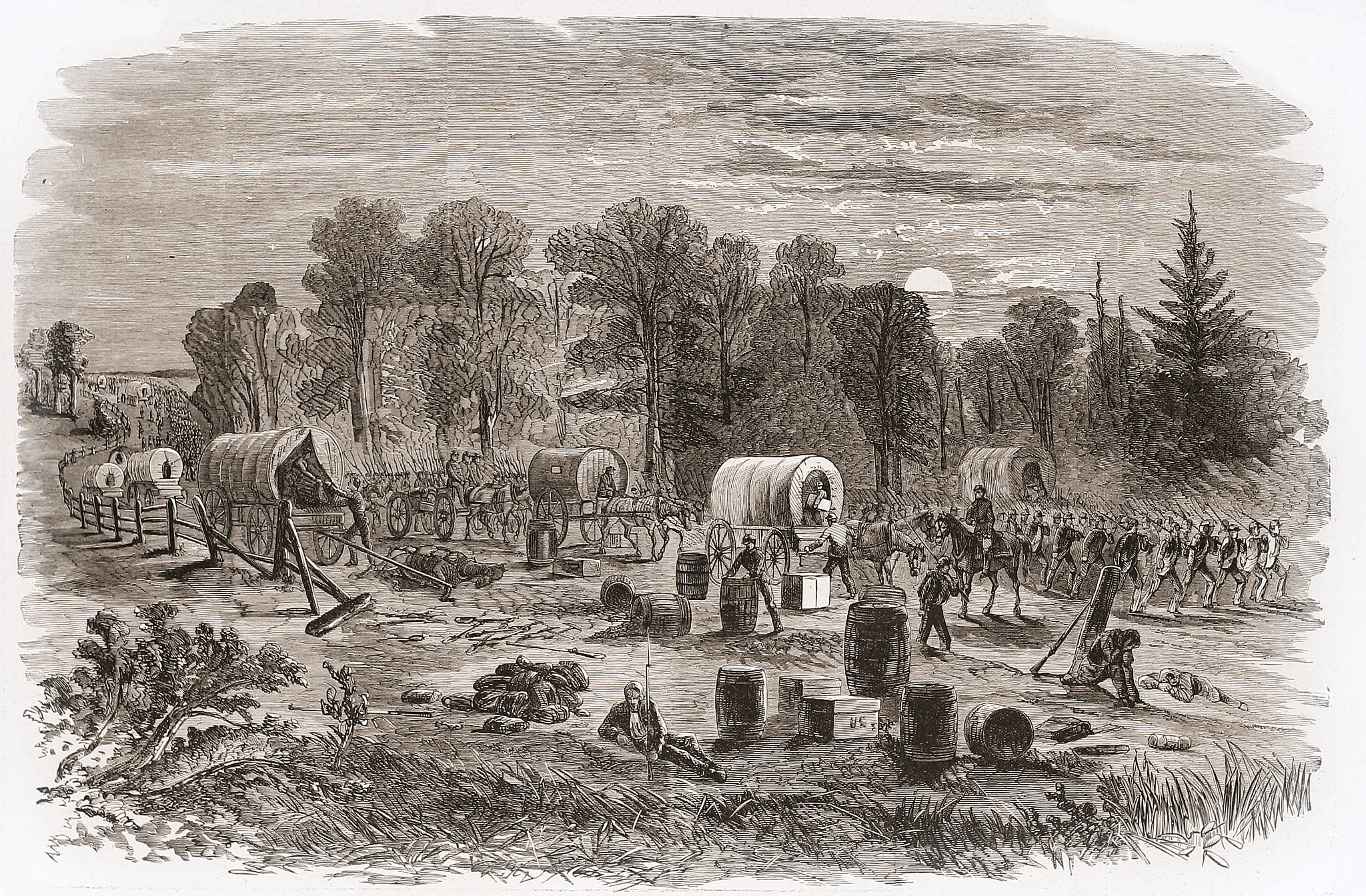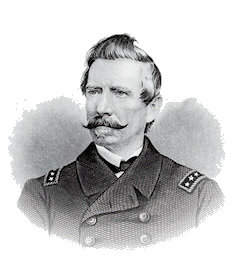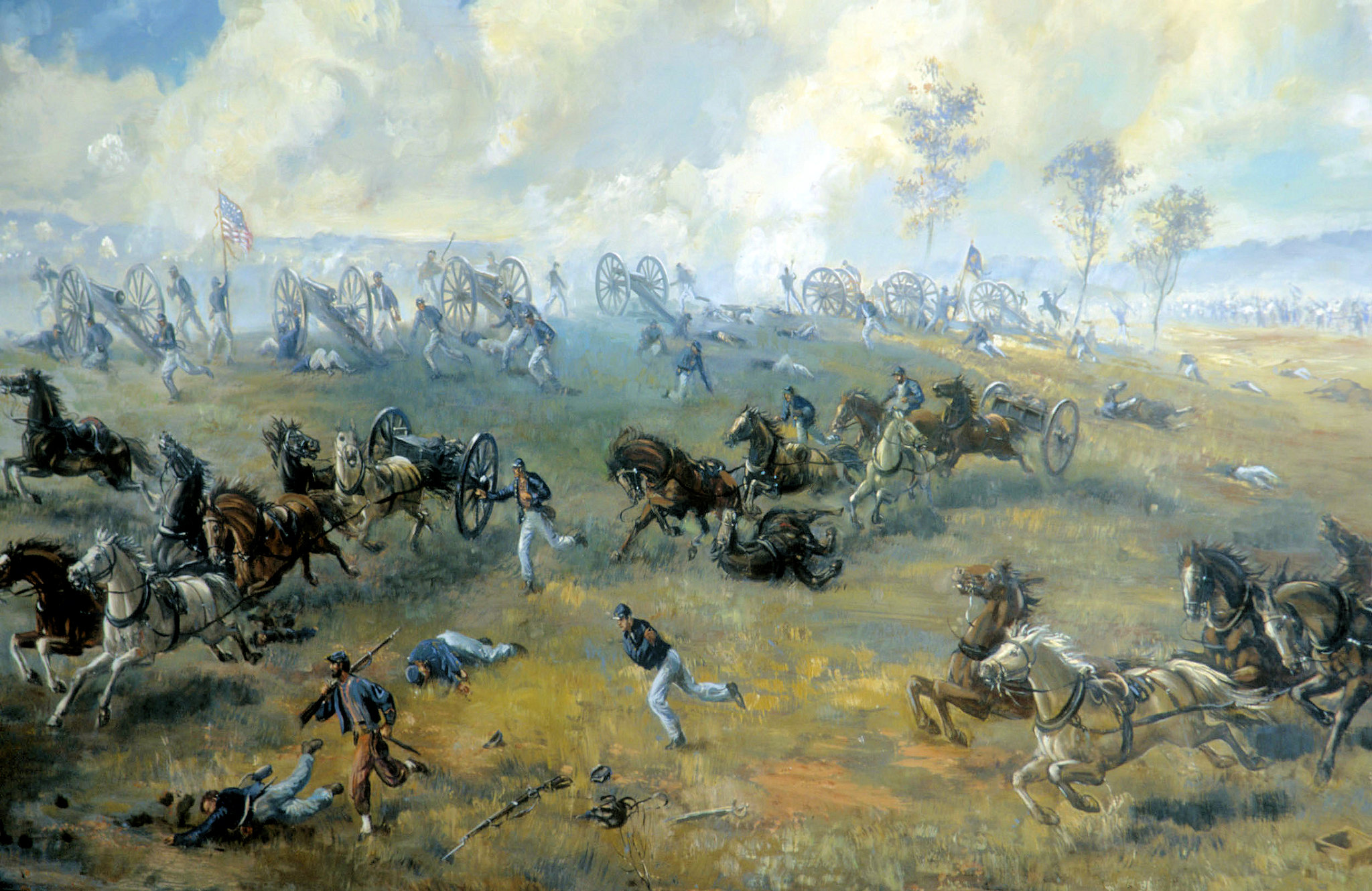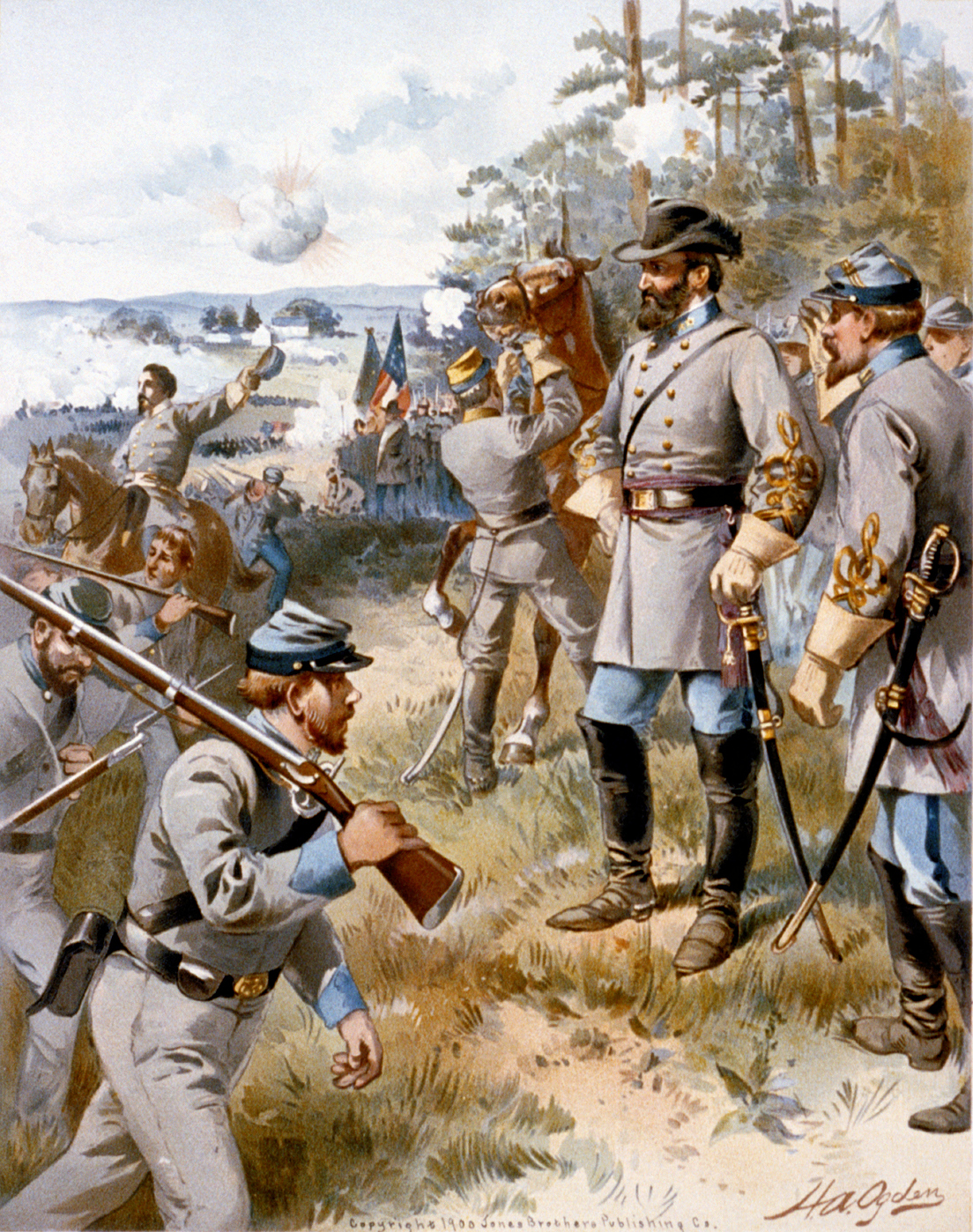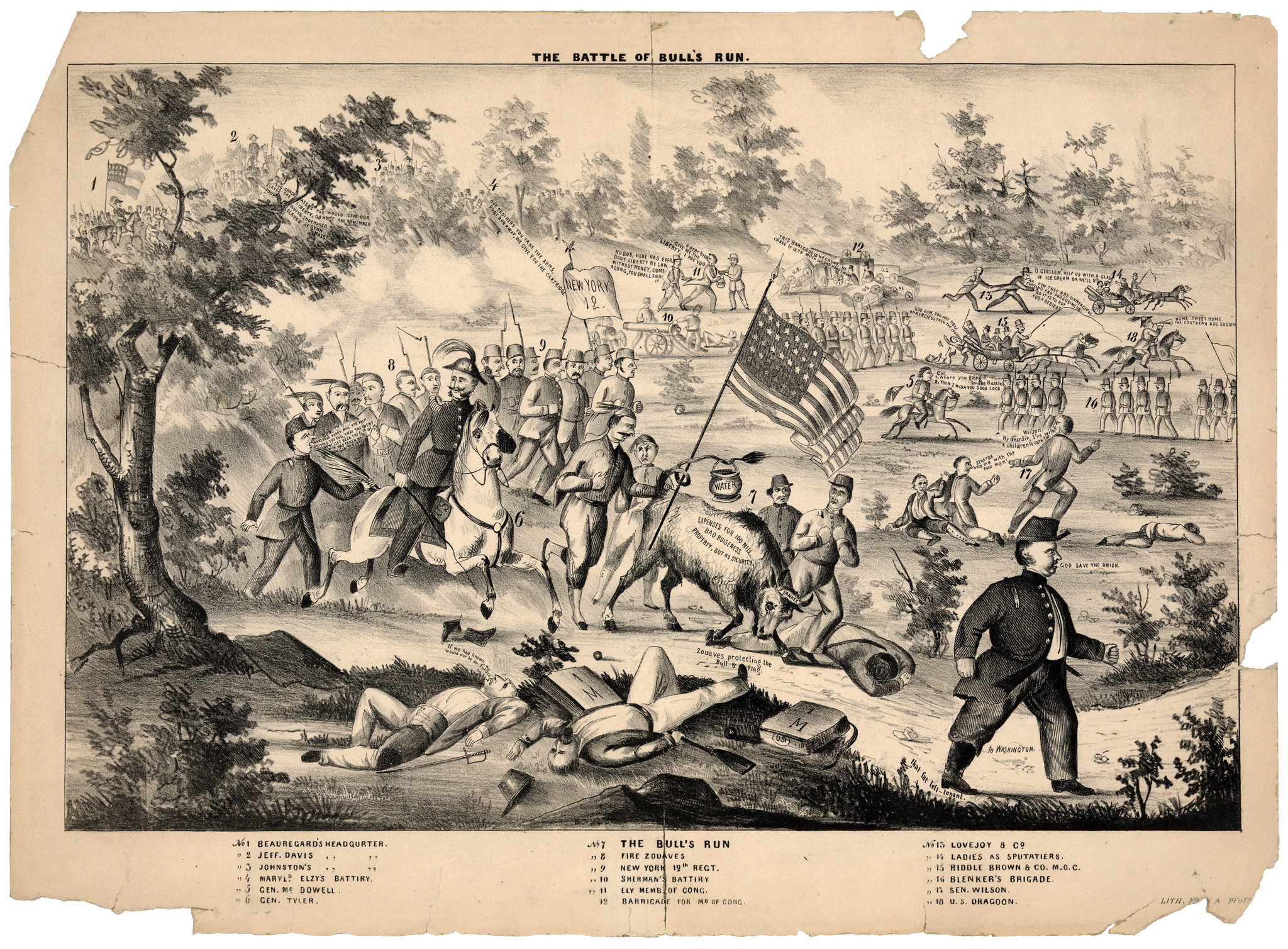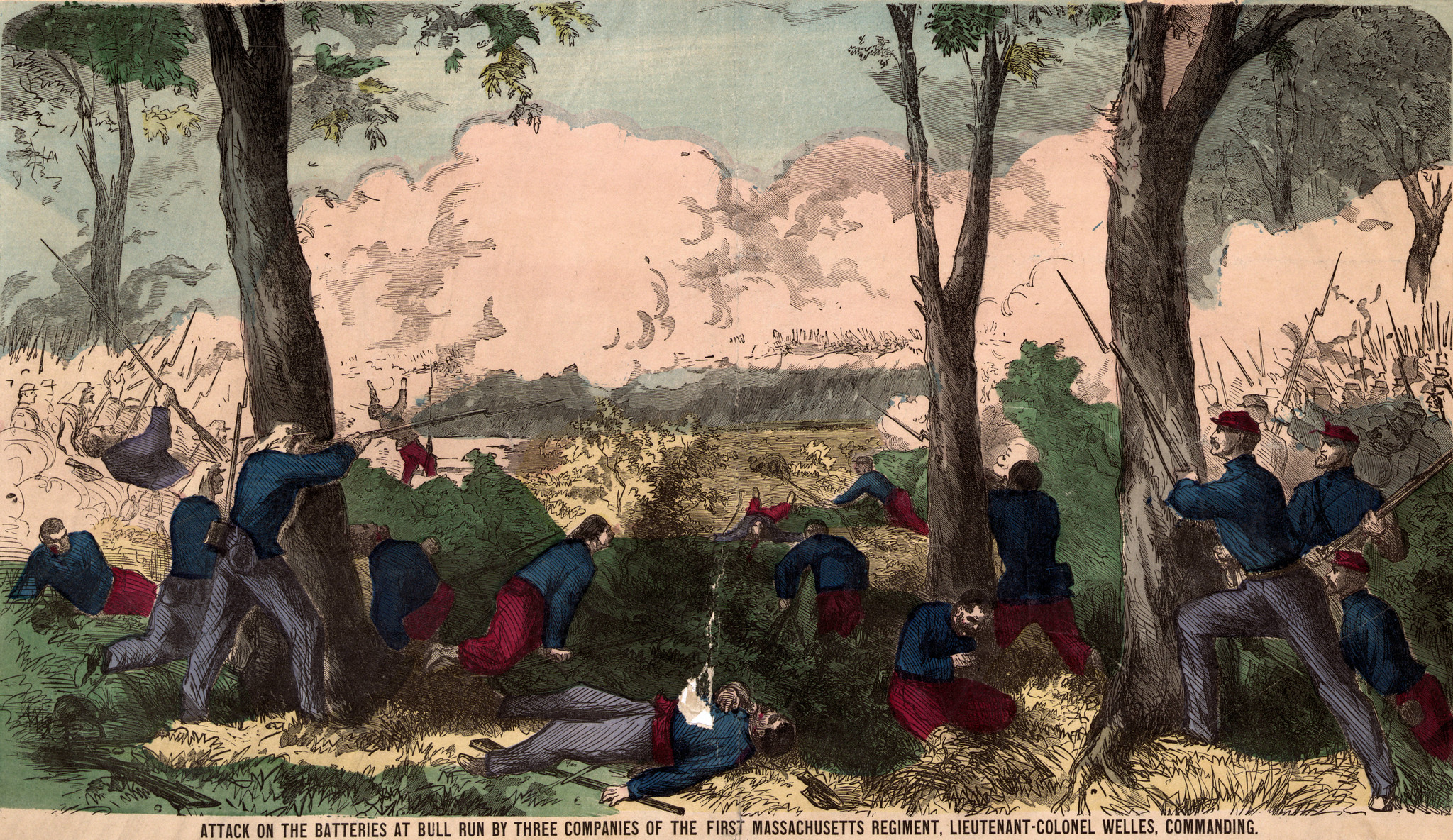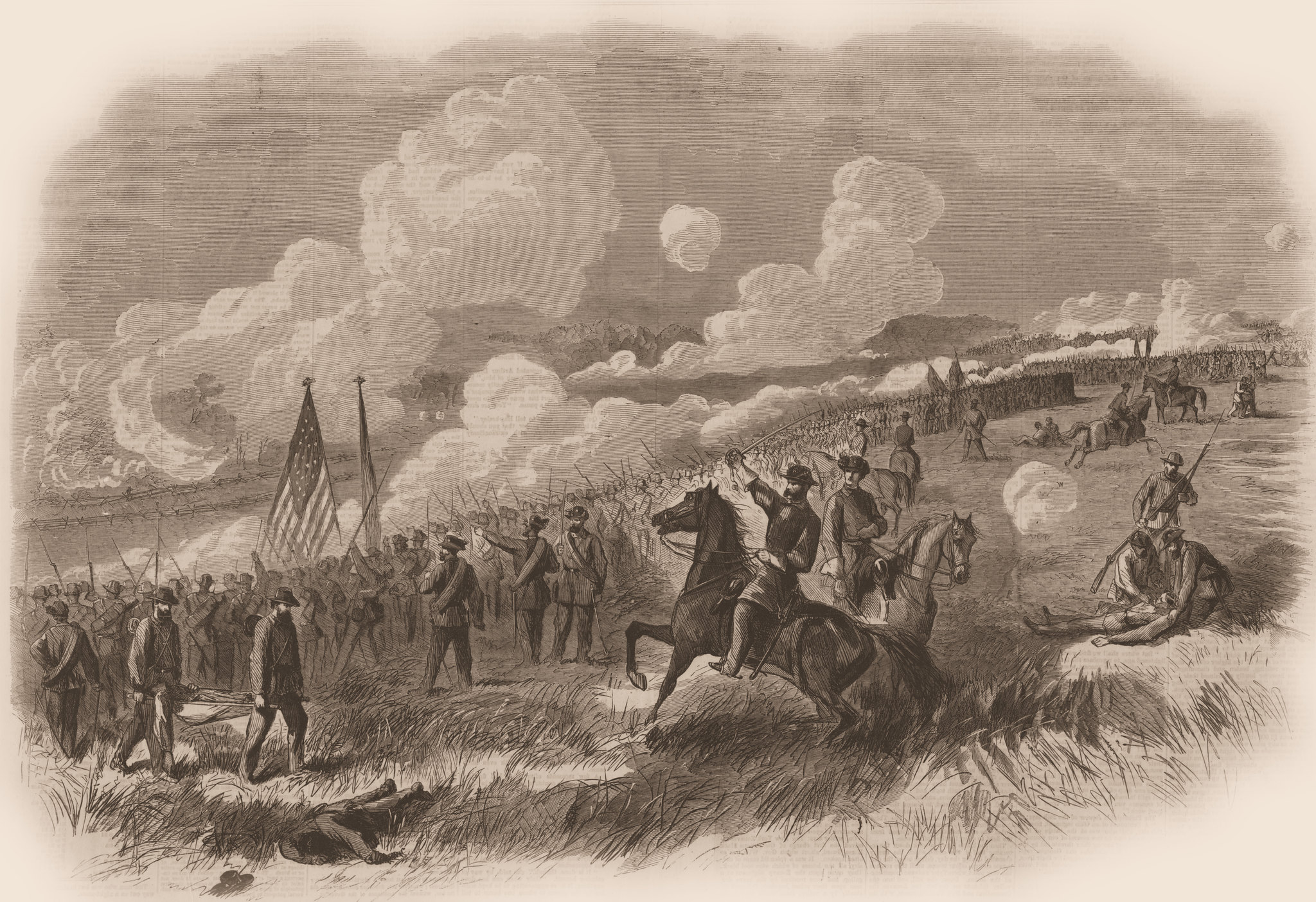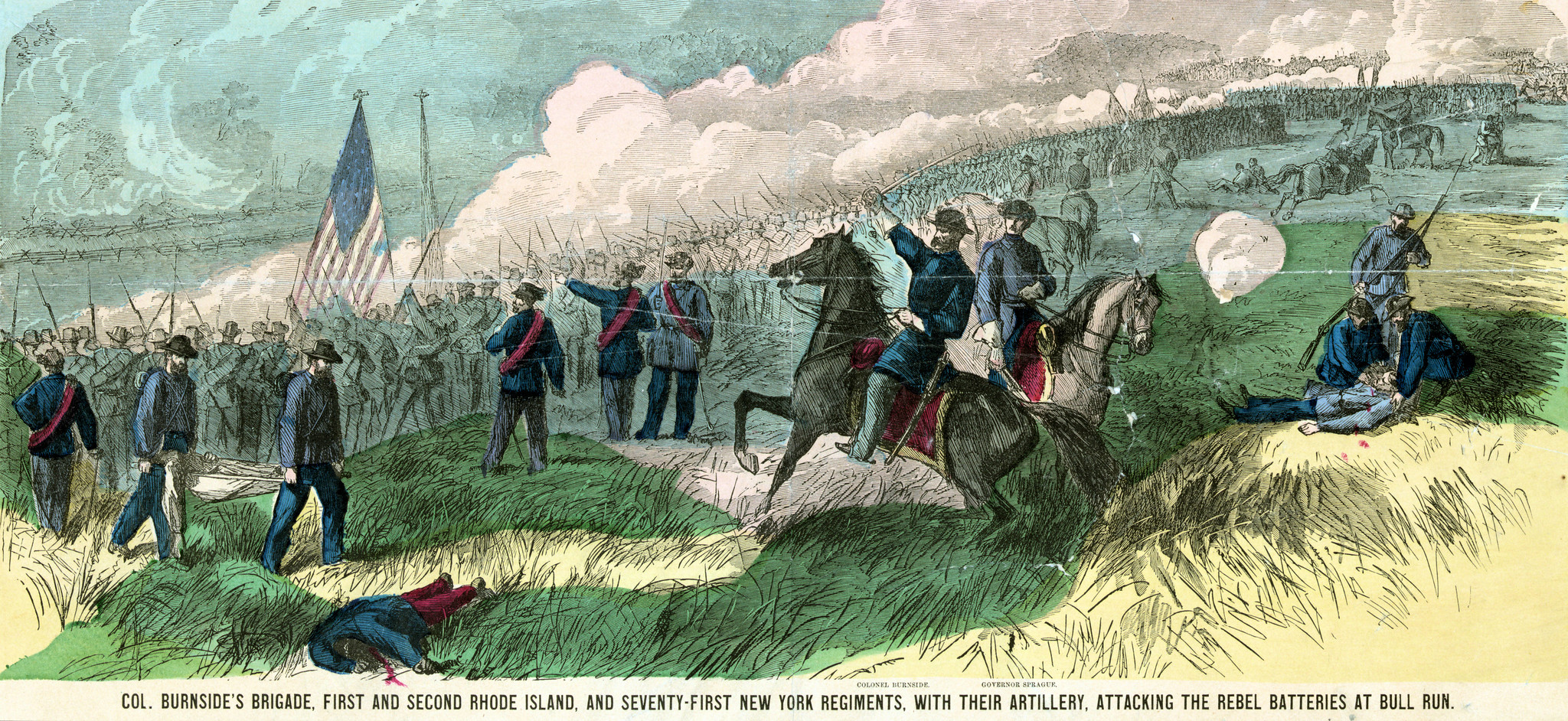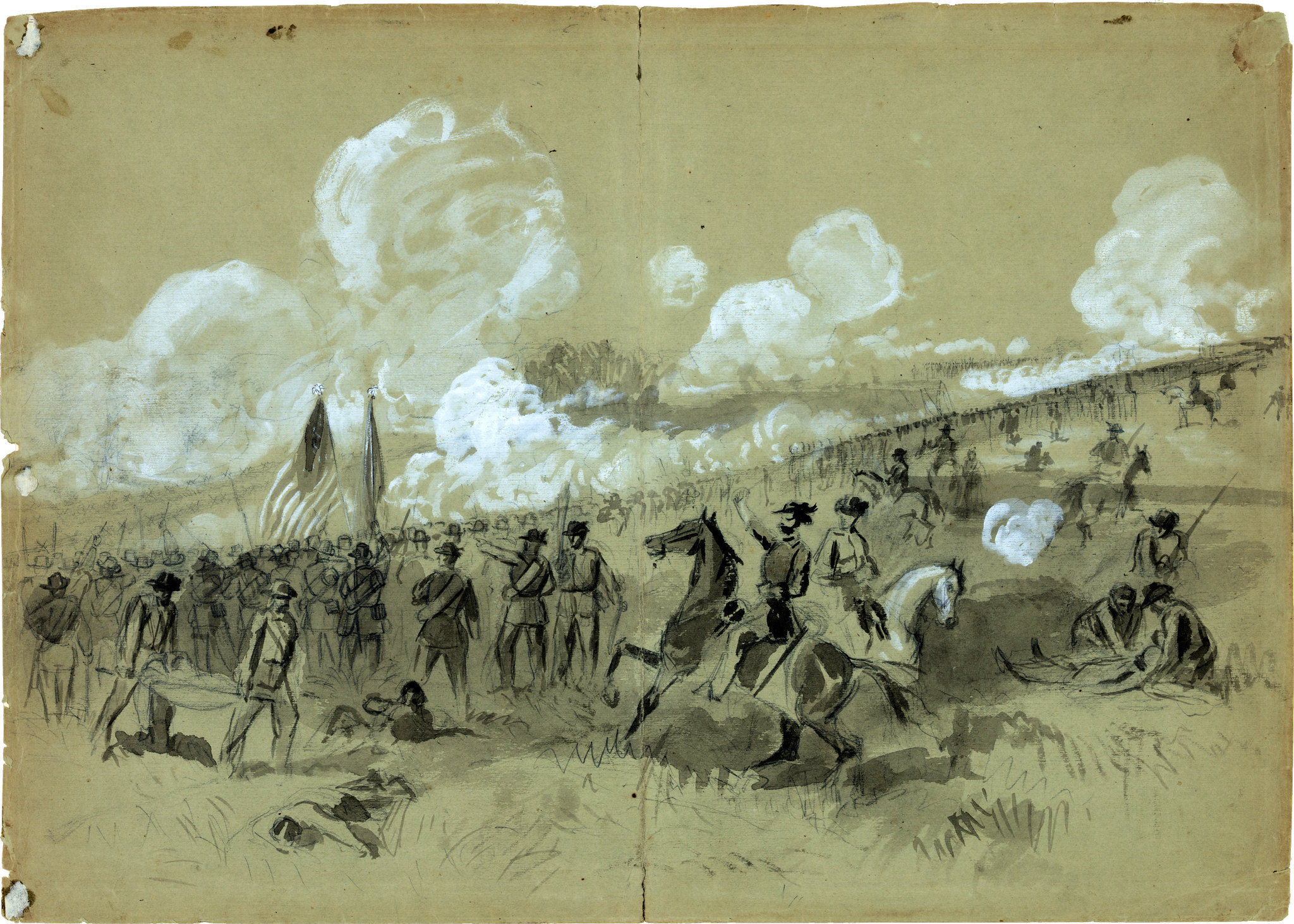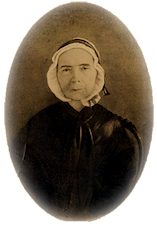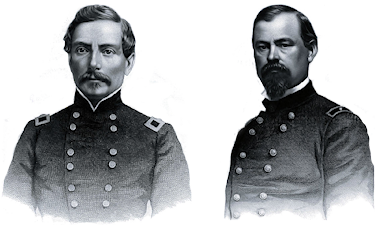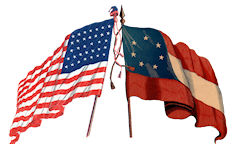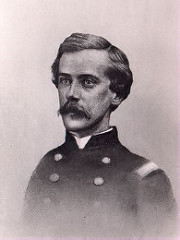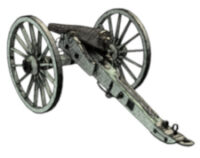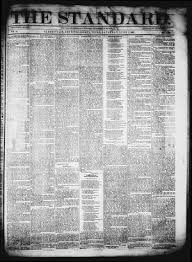July 21st.–The calmness and silence of the streets of Washington this lovely morning suggested thoughts of the very different scenes which, in all probability, were taking place at a few miles’ distance. One could fancy the hum and stir round the Federal bivouacs, as the troops woke up and were formed into column of march towards the enemy. I much regretted that I was not enabled to take the field with General M’Dowell’s army, but my position was surrounded with such difficulties that I could not pursue the course open to the correspondents of the American newspapers. On my arrival in Washington I addressed an application to Mr. Cameron, Secretary at War, requesting him to sanction the issue of rations and forage from the Commissariat to myself, a servant, and a couple of horses, at the contract prices, or on whatever other terms he might think fit, and I had several interviews with Mr. Leslie, the obliging and indefatigable chief clerk of the War Department, in eference to the matter; but as there was a want of precedents for such a course, which was not at all to be wondered at, seeing that no representative of an English newspaper had ever been sent to chronicle the progress of an American army in the field, no satisfactory result could be arrived at, though I had many fair words and promises.
A great outcry had arisen in the North against the course and policy of England, and the journal I represented was assailed on all sides as a Secession organ, favourable to the rebels and exceedingly hostile to the Federal government and the cause of the Union. Public men in America are alive to the inconveniences of attacks by their own press; and as it was quite impossible to grant to the swarms of correspondents from all parts of the Union the permission to draw supplies from the public stores, it would have afforded a handle to turn the screw upon the War Department, already roundly abused in the most influential papers, if Mr. Cameron acceded to me, not merely a foreigner, but the correspondent of a foreign journal which was considered the most powerful enemy of the policy of his government, privileges which he denied to American citizens, representing newspapers which were enthusiastically supporting the cause for which the armies of the North were now in the field.
To these gentlemen indeed, I must here remark, such privileges were of little consequence. In every camp they had friends who were willing to receive them in their quarters, and who earned a word of praise in the local papers for the gratification of either their vanity or their laudable ambition in their own neighbourhood, by the ready service which they afforded to the correspondents. They rode Government horses, had the use of Government waggons, and through fear, favour, or affection, enjoyed facilities to which I had no access. I could not expect persons with whom I was unacquainted to be equally generous, least of all when by doing so they would have incurred popular obloquy and censure; though many officers in the army had expressed in very civil terms the pleasure it would give them to see me at their quarters in the field. Some days ago I had an interview with Mr. Cameron himself, who was profuse enough in promising that he would do all in his power to further my wishes; but he had, nevertheless, neglected sending me the authorisation for which I had applied. I could scarcely stand a baggage train and commissariat upon my own account, nor could I well participate in the system of plunder and appropriation which has marked the course of the Federal army so far, devastating and laying waste all the country behind it.
Hence, all I could do was to make a journey to see the army on the field, and to return to Washington to write my report of its first operation, knowing there would be plenty of time to overtake it before it could reach Richmond, when, as I hoped, Mr. Cameron would be prepared to accede to my request, or some plan had been devised by myself to obviate the difficulties which lay in my path. There was no entente cordiale exhibited towards me by the members of the American press; nor did they, any more than the generals, evince any disposition to help the alien correspondent of the Times, and my only connection with one of their body, the young designer, had not, indeed, inspired me with any great desire to extend my acquaintance. General M’Dowell, on giving me the most hospitable invitation to his quarters, refrained from offering the assistance which, perhaps, it was not in his power to afford; and I confess, looking at the matter calmly, I could scarcely expect that he would, particularly as he said, half in jest, half seriously, “I declare I am not quite easy at the idea of having your eye on me, for you have seen so much of European armies, you will, very naturally, think little of us, generals and all.”
Punctual to time, our carriage appeared at the door, with a spare horse, followed by the black quadruped on which the negro boy sat with difficulty, in consequence of its high spirits and excessively hard mouth. I swallowed a cup of tea and a morsel of bread, put the remainder of the tea into a bottle, got a flask of light Bordeaux, a bottle of water, a paper of sandwiches, and having replenished my small flask with brandy, stowed them all away in the bottom of the gig; but my friend, who is not accustomed to rise very early in the morning, did not make his appearance, and I was obliged to send several times to the legation to quicken his movements. Each time I was assured he would be over presently; but it was not till two hours had elapsed, and when I had just resolved to leave him behind, that he appeared in person, quite unprovided with viaticum, so that my slender store had now to meet the demands of two instead of one. We are off at last. The amicus and self find contracted space behind the driver. The negro boy, grinning half with pain and “the balance” with pleasure, as the Americans say, held on his rampant charger, which made continual efforts to leap into the gig, and thus through the deserted city we proceeded towards the Long Bridge, where a sentry examined our papers, and said with a grin, “You’ll find plenty of Congressmen on before you.” And then our driver whipped his horses through the embankment of Fort Runyon, and dashed off along a country road, much cut up with gun and cart wheels, towards the main turnpike.
The promise of a lovely day, given by the early dawn, was likely to be realised to the fullest, and the placid beauty of the scenery as we drove through the woods below Arlington, and beheld the white buildings shining in the early sunlight, and the Potomac, like a broad silver riband dividing the picture, breathed of peace. The silence close to the city was unbroken. From the time we passed the guard beyond the Long Bridge, for several miles we did not meet a human being, except a few soldiers in the neighbourhood of the deserted camps, and when we passed beyond the range of tents we drove for nearly two hours through a densely-wooded, undulating country; the houses, close to the road-side, shut up and deserted, window-high in the crops of Indian corn, fast ripening for the sickle; alternate field and forest, the latter generally still holding possession of the hollows, and, except when the road, deep and filled with loose stones, passed over the summit of the ridges, the eye caught on either side little but fir-trees and maize, and the deserted wooden houses, standing amidst the slave quarters.
The residences close to the lines gave signs and tokens that the Federals had recently visited them. But at the best of times the inhabitants could not be very well off. Some of the farms were small, the houses tumbling to decay, with unpainted roofs and side walls, and windows where the want of glass was supplemented by panes of wood. As we got further into the country the traces of the debateable land between the two armies vanished, and negroes looked out from their quarters, or sickly-looking women and children were summoned forth by the rattle of the wheels to see who was hurrying to the war. Now and then a white man looked out, with an ugly scowl on his face, but the country seemed drained of the adult male population, and such of the inhabitants as we saw were neither as comfortably dressed nor as healthy looking as the shambling slaves who shuffled about the plantations. The road was so cut up by gun-wheels, ammunition and commissariat waggons, that our horses made but slow way against the continual draft upon the collar; but at last the driver, who had known the country in happier times, announced that we had entered the high road for Fairfax Court-house. Unfortunately my watch had gone down, but I guessed it was then a little before nine o’clock. In a few minutes afterwards I thought I heard, through the eternal clatter and jingle of the old gig, a sound which made me call the driver to stop. He pulled up, and we listened. In a minute or so, the well-known boom of a gun, followed by two or three in rapid succession, but at a considerable distance, reached my ear. “Did you hear that?” The driver heard nothing, nor did my companion, but the black boy on the led horse, with eyes starting out of his head, cried, “I hear them, massa; I hear them, sure enough, like de gun in de navy yard;” and as he spoke the thudding noise, like taps with a gentle hand upon a muffled drum, were repeated, which were heard both by Mr. Warre and the driver. “They are at it! We shall be late! Drive on as fast as you can!” We rattled on still faster, and presently came up to a farm-house, where a man and woman, with some negroes beside them, were standing out by the hedge-row above us, looking up the road in the direction of a cloud of dust, which we could see rising above the tops of the trees. We halted for a moment. “How long have the guns been going, sir?” “Well, ever since early this morning,” said he; “they’ve been having a fight. And I do really believe some of our poor Union chaps have had enough of it already. For here’s some of them darned Secessionists marching down to go into Alexandry.” The driver did not seem altogether content with this explanation of the dust in front of us, and presently, when a turn of the road brought to view a body of armed men, stretching to an interminable distance, with bayonets glittering in the sunlight through the clouds of dust, seemed inclined to halt or turn back again. A nearer approach satisfied me they were friends, and as soon as we came up with the head of the column I saw that they could not be engaged in the performance of any military duty. The men were marching without any resemblance of order, in twos and threes or larger troops. Some without arms, carrying great bundles on their backs; others with their coats hung from their firelocks; many foot sore. They were all talking, and in haste; many plodding along laughing, so I concluded that they could not belong to a defeated army, and imagined M’Dowell was effecting some flank movement. “Where are you going to, may I ask?”
“If this is the road to Alexandria, we are going there.”
“There is an action going on in front is there not?”
“Well, so we believe, but we have not been fighting.”
Although they were in such good spirits, they were not communicative, and we resumed our journey, impeded by the straggling troops and by the country cars containing their baggage and chairs, and tables and domestic furniture, which had never belonged to a regiment in the field. Still they came pouring on. I ordered the driver to stop at a rivulet, where a number of men were seated in the shade, drinking the water and bathing their hands and feet. On getting out I asked an officer, “May I beg to know, sir, where your regiment is going to?” “Well, I reckon, sir, we are going home to Pennsylvania.” “This is the 4th Pennsylvania Regiment, is it not, sir?” “It is so, sir; that’s the fact.” “I should think there is severe fighting going on behind you, judging from the firing” (for every moment the sound of the cannon had been growing more distinct and more heavy)?” “Well, I reckon, sir, there is.” I paused for a moment, not knowing what to say, and yet anxious for an explanation; and the epauletted gentleman, after a few seconds’ awkward hesitation, added, “We are going home because, as you see, the men’s time’s up, sir. We have had three months of this sort of work, and that’s quite enough of it.” The men who were listening to the conversation expressed their assent to the noble and patriotic utterances of the centurion, and, making him a low bow, we resumed our journey.
It was fully three and a half miles before the last of the regiment passed, and then the road presented a more animated scene, for white-covered commissariat waggons were visible, wending towards the front, and one or two hack carriages, laden with civilians, were hastening in the same direction. Before the doors of the wooden farm-houses the coloured people were assembled, listening with outstretched necks to the repeated reports of the guns. At one time, as we were descending the wooded road, a huge blue dome, agitated by some internal convulsion, appeared to bar our progress, and it was only after infinite persuasion of rein and whip that the horses approached the terrific object, which was an inflated balloon, attached to a waggon, and defying the efforts of the men in charge to jockey it safely through the trees.
It must have been about eleven o’clock when we came to the first traces of the Confederate camp, in front of Fairfax Court-house, where they had cut a few trenches and levelled the trees across the road, so as to form a rude abattis; but the works were of a most superficial character, and would scarcely have given cover either to the guns, for which embrasures were left at the flanks to sweep the road, or to the infantry intended to defend them.
The Confederate force stationed here must have consisted, to a considerable extent, of cavalry. The bowers of branches, which they had made to shelter their tents, camp tables, empty boxes, and packing-cases, in the debris one usually sees around an encampment, showed they had not been destitute of creature comforts.
Some time before noon the driver, urged continually by adjurations to get on, whipped his horses into Fairfax Court-house, a village which derives its name from a large brick building, in which the sessions of the county are held. Some thirty or forty houses, for the most part detached, with gardens or small strips of land about them, form the main street. The inhabitants who remained had by no means an agreeable expression of countenance, and did not seem on very good terms with the Federal soldiers, who were lounging up and down the streets, or standing in the shade of the trees and doorways. I asked the sergeant of a picket in the street how long the firing had been going on. He replied that it had commenced at half past seven or eight, and had been increasing ever since. “Some of them will lose their eyes and back teeth,” he added, “before it is over.” The driver, pulling up at a roadside inn in the town, here made the startling announcement, that both he and his horses must have something to eat, and although we would have been happy to join him, seeing that we had no breakfast, we could not afford the time, and were not displeased when a thin-faced, shrewish woman, in black, came out into the verandah, and said she could not let us have anything unless we liked to wait till the regular dinner hour of the house, which was at one o’clock. The horses got a bucket of water, which they needed in that broiling sun; and the cannonade, which by this time had increased into a respectable tumult that gave evidence of a well-sustained action, added vigour to the driver’s arm, and in a mile or two more we dashed in to a village of burnt houses, the charred brick chimney stacks standing amidst the blackened embers being all that remained of what once was German Town. The firing of this village was severely censured by General M’Dowell, who probably does not appreciate the value of such agencies employed “by our glorious Union army to develope loyal sentiments among the people of Virginia.”
The driver, passing through the town, drove straight on, but after some time I fancied the sound of the guns seemed dying away towards our left. A big negro came shambling along the roadside–the driver stopped and asked him,” is this the road to Centreville?” “Yes, sir; right on, sir; good road to Centreville, massa,” and so we proceeded, till I became satisfied from the appearance of the road that we had altogether left the track of the army. At the first cottage we halted, and inquired of a Virginian, who came out to look at us, whether the road led to Centreville. “You’re going to Centreville, are you?” “Yes, by the shortest road we can.” “Well, then–you’re going wrong–right away! Some people say there’s a bend of road leading through the wood a mile further on, but those who have tried it lately have come back to German Town and don’t think it leads to Centreville at all.” This was very provoking, as the horses were much fatigued and we had driven several miles out of our way. The driver, who was an Englishman, said, “I think it would be best for us to go on and try the road anyhow. There’s not likely to be any Seceshers about there, are there, sir?”
“What did you say, sir,” inquired the Virginian, with a vacant stare upon his face.
“I merely asked whether you think we are likely to meet with any Secessionists if we go along that road?”
“Secessionists!” repeated the Virginian, slowly pronouncing each syllable as if pondering on the meaning of the word–” Secessionists! Oh no, sir; I don’t believe there’s such a thing as a Secessionist in the whole of this country.”
The boldness of this assertion, in the very hearing of Beauregard’s cannon, completely shook the faith of our Jehu in any information from that source, and we retraced our steps to German Town, and were directed into the proper road by some negroes, who were engaged exchanging Confederate money at very low rates for Federal copper with a few straggling soldiers. The faithful Muley Moloch, who had been capering in our rear so long, now complained that he was very much burned, but on further inquiry it was ascertained he was merely suffering from the abrading of his skin against an English saddle.
In an hour more we had gained the high road to Centreville, on which were many buggies, commssiariat carts, and waggons full of civilians, and a brisk canter brought us in sight of a rising ground, over which the road led directly through a few houses on each side, and dipped out of sight, the slopes of the hill being covered with men, carts, and horses, and the summit crested with spectators, with their backs turned towards us, and gazing on the valley beyond. “There’s Centreville,” says the driver, and on our poor panting horses were forced, passing directly through the Confederate bivouacs, commissariat parks, folds of oxen, and two German regiments, with a battery of artillery, halting on the rising-ground by the road-side. The heat was intense. Our driver complained of hunger and thirst, to which neither I nor my companion were insensible; and so pulling up on the top of the hill, I sent the boy down to the village which we had passed, to see if he could find shelter for the horses, and a morsel for our breakfastless selves.
It was a strange scene before us. From the hill a densely wooded country, dotted at intervals with green fields and cleared lands, spread five or six miles in front, bounded by a line of blue and purple ridges, terminating abruptly in escarpments towards the left front, and swelling gradually towards the right into the lower spines of an offshoot from the Blue-Ridge Mountains. On our left the view was circumscribed by a forest which clothed the side of the ridge on which we stood, and covered its shoulder far down into the plain. A gap in the nearest chain of the hills in our front was pointed out by the bystanders as the Pass of Manassas, by which the railway from the West is carried into the plain, and still nearer at hand, before us, is the junction of that rail with the line from Alexandria, and with the railway leading southwards to Richmond. The intervening space was not a dead level; undulating lines of forest marked the course of the streams which intersected it, and gave, by their variety of colour and shading, an additional charm to the landscape which, enclosed in a framework of blue and purple hills, softened into violet in the extreme distance, presented one of the most agreeable displays of simple pastoral woodland scenery that could be conceived.
But the sounds which came upon the breeze, and the sights which met our eyes, were in terrible variance with the tranquil character of the landscape. The woods far and near echoed to the roar of cannon, and thin frayed lines of blue smoke marked the spots whence came the muttering sound of rolling musketry; the white puffs of smoke burst high above the treetops, and the gunners’ rings from shell and howitzer marked the fire of the artillery.
Clouds of dust shifted and moved through the forest; and through the wavering mists of light blue smoke, and the thicker masses which rose commingling from the feet of men and the mouths of cannon, I could see the gleam of arms and the twinkling of bayonets.
On the hill beside me there was a crowd of civilians on horseback, and in all sorts of vehicles, with a few of the fairer, if not gentler sex. A few officers and some soldiers, who had straggled from the regiments in reserve, moved about among the spectators, and pretended to explain the movements of the troops below, of which they were profoundly ignorant.
The cannonade and musketry had been exaggerated by the distance and by the rolling echoes of the hills; and sweeping the position narrowly with my glass from point to point, I failed to discover any traces of close encounter or very severe fighting. The spectators were all excited, and a lady with an opera-glass who was near me was quite beside herself when an unusually heavy discharge roused the current of her blood– “That is splendid. Oh, my! Is not that first-rate? I guess we will be in Richmond this time to-morrow.” These, mingled with coarser exclamations, burst from the politicians who had come out to see the triumph of the Union arms. I was particularly irritated by constant applications for the loan of my glass. One broken-down looking soldier observing my flask, asked me for a drink, and took a startling pull, which left but little between the bottom and utter vacuity.
“Stranger, that’s good stuff and no mistake. I have not had such a drink since I come South. I feel now as if I’d like to whip ten Seceshers.”
From the line of the smoke it appeared to me that the action was in an oblique line from our left, extending farther outwards towards the right, bisected by a road from Centreville, which descended the hill close at hand and ran right across the undulating plain, its course being marked by the white covers of the baggage and commissariat waggons as far as a turn of the road, where the trees closed in upon them. Beyond the right of the curling smoke clouds of dust appeared from time to time in the distance, as if bodies of cavalry were moving over a sandy plain.
Notwitstanding all the exultation and boastings of the people at Centreville, I was well convinced no advance of any importance or any great success had been achieved, because the ammunition and baggage waggons had never moved, nor had the reserves received any orders to follow in the line of the army.
The clouds of dust on the right were quite inexplicable. As we were looking, my philosophic companion asked me in perfect seriousness, “Are we really seeing a battle now? Are they supposed to be fighting where all that smoke is going on? This is rather interesting, you know.”
Up came our black boy. “Not find a bit to eat, sir, in all the place.” We had, however, my little paper of sandwiches, and descended the hill to a bye lane off the village, where, seated in the shade of the gig, Mr. Warre and myself, dividing our provision with the driver, wound up a very scanty, but much relished, repast with a bottle of tea and half the bottle of Bordeaux and water, the remainder being prudently reserved at my request for contingent remainders. Leaving orders for the saddle horse, which was eating his first meal, to be brought up the moment he was ready–I went with Mr. Warre to the hill once more and observed that the line had not sensibly altered whilst we were away.
An English gentleman, who came up flushed and heated from the plain, told us that the Federals had been advancing steadily in spite of a stubborn resistance and had behaved most gallantly.
Loud cheers suddenly burst from the spectators, as a man dressed in the uniform of an officer, whom I had seen riding violently across the plain in an open space below, galloped along the front, waving his cap and shouting at the top of his voice. He was brought up by the press of people round his horse close to where I stood. “We’ve whipped them on all points,” he cried. “We have taken all their batteries. They are retreating as fast as they can, and we are after them.” Such cheers as rent the welkin! The Congress men shook hands with each other, and cried out, “Bully for us. Bravo, didn’t I tell you so.” The Germans uttered their martial cheers and the Irish hurrahed wildly. At this moment my horse was brought up the hill, and I mounted and turned towards the road to the front, whilst Mr. Warre and his companion proceeded straight down the hill.
By the time I reached the lane, already mentioned, which was in a few minutes, the string of commissariat waggons was moving onwards pretty briskly, and I was detained until my friends appeared at the roadside. I told Mr. Warre I was going forward to the front as fast as I could, but that I would come back, under any circumstances, about an hour before dusk, and would go straight to the spot where we had put up the gig by the road-side, in order to return to Washington. Then getting into the fields, I pressed my horse, which was quite recovered from his twenty-seven mile’s ride and full of spirit and mettle, as fast as I could, making detours here and there to get through the ox fences, and by the small steams which cut up the country. The firing did not increase but rather diminished in volume, though it now sounded close at hand.
I had ridden between three and a half and four miles, as well as I could judge, when I was obliged to turn for the third and fourth time into the road by a considerable stream, which was spanned by a bridge, towards which I was threading my way, when my attention was attracted by loud shouts in advance, and I perceived several waggons coming from the direction of the battle-field, the drivers of which were endeavouring to force their horses past the ammunition carts going in the contrary direction near the bridge; a thick cloud of dust rose behind them, and running by the side of the waggons, were a number of men in uniform whom I supposed to be the guard. My first impression was that the waggons were returning for fresh supplies of ammunition. But every moment the crowd increased, drivers and men cried out with the most vehement gestures, “Turn back! Turn back! We are whipped.” They seized the heads of the horses and swore at the opposing drivers. Emerging from the crowd a breathless man in the uniform of an officer with an empty scabbard dangling by his side, was cut off by getting between my horse and a cart for a moment. “What is the matter, sir? What is all this about?” “Why it means we are pretty badly whipped, that’s the truth,” he gasped, and continued.
By this time the confusion had been communicating itself through the line of waggons towards the rear, and the drivers endeavoured to turn round their vehicles in the narrow road, which caused the usual amount of imprecations from he men and plunging and kicking from the horses.
The crowd from the front continually increased, the heat, the uproar, and the dust were beyond description, and these were augmented when some cavalry soldiers, flourishing their sabres and preceded by an officer, who cried out, “Make way there–make way there for the General,” attempted to force a covered waggon in which was seated a man with a bloody handkerchief round his head, through the press.
I had succeeded in getting across the bridge with great difficulty before the waggon came up, and I saw the crowd on the road was still gathering thicker and thicker. Again I asked an officer, who was on foot, with his sword under his arm, “What is all this for?” “We are whipped, sir. We are all in retreat. You are all to go back.” “Can you tell me where I can find General M’Dowell?” “No! nor can any one else.”
A few shells could be heard bursting not very far off, but there was nothing to account for such an extraordinary scene. A third officer, however, confirmed the report that the whole army was in retreat, and that the Federals were beaten on all points, but there was nothing in this disorder to indicate a general rout. All these things took place in a few seconds. I got up out of the road into a corn-field, through which men were hastily walking or running, their faces streaming with perspiration, and generally without arms, and worked my way for about half a mile or so, as well as I could judge, against an increasing stream of fugitives, the ground being strewed with coats, blankets, firelocks, cooking tins, caps, belts, bayonets–asking in vain where General M’Dowell was.
Again I was compelled by the condition of the fields to come into the road; and having passed a piece of wood and a regiment which seemed to be moving back in column of march in tolerably good order, I turned once more into an opening close to a white house, not far from the lane, beyond which there was a belt of forest. Two field-pieces unlimbered near the house, with panting horses in the rear, were pointed towards the front, and along the road beside them there swept a tolerably steady column of men mingled with field ambulances and light baggage carts, back to Centreville. I had just stretched out my hand to get a cigar-light from a German gunner, when the dropping shots which had been sounding through the woods in front of us, suddenly swelled into an animated fire. In a few seconds a crowd of men rushed out of the wood down towards the guns, and the artillerymen near me seized the trail of a piece, and were wheeling it round to fire, when an officer or sergeant called out, “Stop! stop! They are our own men.” and in two or three minutes the whole battalion came sweeping past the guns at the double, and in the utmost disorder. Some of the artillerymen dragged the horses out of the tumbrils; and for a moment the confusion was so great I could not understand what had taken place; but a soldier whom I stopped, said, “We are pursued by their cavalry; they have cut us all to pieces.”
Murat himself would not have dared to move a squadron on such ground. However, it could not be doubted that something serious was taking place; and at that moment a shell burst in front of the house, scattering the soldiers near it, which was followed by another that bounded along the road; and in a few minutes more out came another regiment from the wood, almost as broken as the first. The scene on the road had now assumed an aspect which has not a parallel in any description I have ever read. Infantry soldiers on mules and draught horses, with the harness clinging to their heels, as much frightened as their riders; negro servants on their masters’ chargers; ambulances crowded with unwounded soldiers; waggons swarming with men who threw out the contents in the road to make room, grinding through a shouting, screaming mass of men on foot, who were literally yelling with rage at every halt, and shrieking out, “Here are the cavalry! Will you get on?” This portion of the force was evidently in discord.
There was nothing left for it but to go with the current one could not stem. I turned round my horse from the deserted guns, and endeavoured to find out what had occurred as I rode quietly back on the skirts of the crowd. I talked with those on all sides of me. Some uttered prodigious nonsense, describing batteries tier over tier, and ambuscades, and blood running knee deep. Others described how their boys had carried whole lines of entrenchments, but were beaten back for want of reinforcements. The names of many regiments were mentioned as being utterly destroyed. Cavalry and bayonet charges and masked batteries played prominent parts in all the narrations. Some of the officers seemed to feel the disgrace of defeat; but the strangest thing was the general indifference with which the event seemed to be regarded by those who collected their senses as soon as they got out of fire, and who said they were just going as far as Centreville, and would have a big fight to-morrow.
By this time I was unwillingly approaching Centreville in the midst of heat, dust, confusions, imprecations inconceivable. On arriving at the place where a small rivulet crossed the road, the throng increased still more. The ground over which I had passed going out was now covered with arms, clothing of all kinds, accoutrements thrown off and left to be trampled in the dust under the hoofs of men and horses. The runaways ran alongside the waggons, striving to force themselves in among the occupants, who resisted tooth and nail. The drivers spurred, and whipped, and urged the horses to the utmost of their bent. I felt an inclination to laugh, which was overcome by disgust, and by that vague sense of something extraordinary taking place which is experienced when a man sees a number of people acting as if driven by some unknown terror. As I rode in the crowd, with men clinging to the stirrup-leathers, or holding on by anything they could lay hands on, so that I had some apprehension of being pulled off, I spoke to the men, and asked them over and over again not to be in such a hurry. “There’s no enemy to pursue you. All the cavalry in the world could not get at you.” But I might as well have talked to the stones.
For my own part, I wanted to get out of the ruck as fast as I could, for the heat and dust were very distressing, particularly to a half-starved man. Many of the fugitives were in the last stages of exhaustion, and some actually sank down by the fences, at the risk of being trampled to death. Above the roar of the flight, which was like the rush of a great river, the guns burst forth from time to time.
The road at last became somewhat clearer; for I had got ahead of some of the ammunition train and waggons, and the others were dashing up the hill towards Centreville. The men’s great-coats and blankets had been stowed in the trains; but the fugitives had apparently thrown them out on the road, to make room for themselves. Just beyond the stream I saw a heap of clothing tumble out of a large covered cart, and cried out after the driver, “Stop! stop! All the things are tumbling out of the cart.” But my zeal was checked by a scoundrel putting his head out, and shouting with a curse, “If you try to stop the team, I’ll blow your ______ brains out.” My brains advised me to adopt the principle of non-intervention.
It never occurred to me that this was a grand debacle. All along I believed the mass of the army was not broken, and that all I saw around was the result of confusion created in a crude organisation by a forced retreat; and knowing the reserves were at Centreville and beyond, I said to myself, “Let us see how this will be when we get to the hill.” I indulged in a quiet chuckle, too, at the idea of my philosophical friend and his stout companion finding themselves suddenly enveloped in the crowd of fugitives; but knew they could easily have regained their original position on the hill. Trotting along briskly through the fields, I arrived at the foot of the slope on which Centreville stands, and met a German regiment just deploying into line very well and steadily–the men in the rear companies laughing, smoking, singing, and jesting with the fugitives, who were filing past; but no thought of stopping the waggons, as the orders repeated from mouth to mouth were that they were to fall back beyond Centreville.
The air of the men was good. The officers were cheerful, and one big German with a great pipe in his bearded mouth, with spectacles on nose, amused himself by pricking the horses with his sabre point, as he passed, to the sore discomfiture of the riders. Behind the regiment came a battery of brass field-pieces, and another regiment in column of march was following the guns. They were going to form line at the end of the slope, and no fairer position could well be offered for a defensive attitude, although it might be turned. But it was getting too late for the enemy wherever they were to attempt such an extensive operation. Several times I had been asked by officers and men, “Where do you think we will halt? Where are the rest of the army?” I always replied “Centreville,” and I had heard hundreds of the fugitives say they were going to Centreville.
I rode up the road, turned into the little street which carries the road on the right-hand side to Fairfax Courthouse and the hill, and went straight to the place where I had left the buggy in a lane on the left of the road beside a small house and shed, expecting to find Mr. Warre ready for a start, as I had faithfully promised Lord Lyons he should be back that night in Washington. The buggy was not there. I pulled open the door of the shed in which the horses had been sheltered out of the sun. They were gone. “Oh,” said I, to myself, “of course! What a stupid fellow I am. Warre has had the horses put in and taken the gig to the top of the hill, in order to see the last of it before we go.” And so I rode over to the ridge; but arriving there, could see no sign of our vehicle far or near. There were two carriages of some kind or other still remaining on the hill, and a few spectators, civilians and military, gazing on the scene below, which was softened in the golden rays of the declining sun. The smoke wreaths had ceased to curl over the green sheets of billowy forest as sea foam crisping in a gentle breeze breaks the lines of the ocean. But far and near yellow and dun-coloured piles of dust seamed the landscape, leaving behind them long trailing clouds of lighter vapours which were dotted now and then by white puff balls from the bursting of shell. On the right these clouds were very heavy and seemed to approach rapidly, and it occurred to me they might be caused by an advance of the much spoken-of and little seen cavalry; and remembering the cross road from German Town, it seemed a very fine and very feasible operation for the Confederates to cut right in on the line of retreat and communication, in which case the fate of the army and of Washington could not be dubious. There were now few civilians on the hill, and these were thinning away. Some were gesticulating and explaining to one another the causes of the retreat, looking very hot and red. The confusion among the last portion of the carriages and fugitives on the road, which I had outstripped, had been renewed again, and the crowd there presented a remarkable and ludicrous aspect through the glass; but there were two strong battalions in good order near the foot of the hill, a battery on the slope, another on the top, and a portion of a regiment in and about the houses of the village. A farewell look at the scene presented no new features. Still the clouds of dust moved onwards denser and higher; flashes of arms lighted them up at times; the fields were dotted by fugitives, among whom many mounted men were marked by their greater speed, and the little flocks of dust rising from the horses’ feet.
I put up my glass, and turning from the hill, with difficulty forced my way through the crowd of vehicles which were making their way towards the main road in the direction of the lane, hoping that by some lucky accident I might find the gig in waiting for me. But I sought in vain; a sick soldier who was on a stretcher in front of the house near the corner of the lane, leaning on his elbow and looking at the stream of men and carriages, asked me if I could tell him what they were in such a hurry for, and I said they were merely getting back to their bivouacs. A man dressed in civilian’s clothes grinned as I spoke. “I think they’ll go farther than that,” said he; and then added, “If you’re looking for the waggon you came in, it’s pretty well back to Washington by this time. I think I saw you down theere with a nigger and two men.” “Yes. They’re all off, gone more than an hour and a-half ago, I think, and a stout man–I thought was you at first–along with them.”
Nothing was left for it but to brace up the girths for a ride to the Capitol, for which, hungry and fagged as I was, I felt very little inclination. I was trotting quietly down the hill road beyond Centreville, when suddenly the guns on the other side, or from a battery very near, opened fire, and a fresh outburst of artillery sounded through the woods. In an instant the mass of vehicles and retreating soldiers, teamsters, and civilians, as if agonised by an electric shock, quivered throughout the tortuous line. “With dreadful shouts and cursings, the drivers lashed their maddened horses, and leaping from the carts, left them to their fate, and ran on foot. Artillerymen and foot soldiers, and negroes mounted on gun horses, with the chain traces and loose trappings trailing in the dust, spurred and flogged their steeds down the road or by the side paths. The firing continued and seemed to approach the hill, and at every report the agitated body of horsemen and waggons was seized, as it were, with a fresh convulsion.
Once more the dreaded cry, “The cavalry! cavalry are coming,” rang through the crowd, and looking back to Centreville I perceived coming down the hill, between me and the sky, a number of mounted men, who might at a hasty glance be taken for horsemen in the act of sabreing the fugitives. In reality they were soldiers and civilians, with, I regret to say, some officers among them, who were whipping and striking their horses with sticks or whatever else they could lay hands on. I called out to the men who were frantic with terror beside me, “They are not cavalry at all; they’re your own men”–but they did not heed me. A fellow who was shouting out, “Run! Run!” as loud as he could beside me, seemed to take delight in creating alarm; and as he was perfectly collected as far as I could judge, I said, “What on earth are you running for? What are you afraid of?” He was in the roadside below me, and at once turning on me, and exclaiming, “I’m not afraid of you,” presented his piece and pulled the trigger so instantaneously, that had it gone off I could not have swerved from the ball. As the scoundrel deliberately drew up to examine the nipple, I judged it best not to give him another chance, and spurred on through the crowd, where any man could have shot as many as he pleased without interruption. The only conclusion I came to was, that he was mad or drunken. When I was passing by the line of the bivouacs a battalion of men came tumbling down the bank from the field into the road, with fixed bayonets, and as some fell in the road and others tumbled on top of them, there must have been a few ingloriously wounded.
I galloped on for a short distance to head the ruck, for I could not tell whether this body of infantry intended moving back towards Centreville or were coming down the road; but the mounted men galloping furiously past me, with a cry of ” Cavalry! cavalry!” on their lips, swept on faster than I did, augmenting the alarm and excitement. I came up with two officers who were riding more leisurely; and touching my hat, said, “I venture to suggest that these men should be stopped, sir. If not, they will alarm the whole of the post and pickets on to Washington. They will fly next, and the consequences will be most disastrous.” One of the two, looking at me for a moment, nodded his head without saying a word, spurred his horse to full speed, and dashed on in front along the road. Following more leisurely I observed the fugitives in front were suddenly checked in their speed; and as I turned my horse into the wood by the road-side to get on so as to prevent the chance of another blockup, I passed several private vehicles, in one of which Mr. Raymond, of the New York Times, was seated with some friends, looking by no means happy. He says in his report to his paper, “About a mile this side of Centreville a stampedo took place amongst the teamsters and others, which threw everything into the utmost confusion, and inflicted very serious injuries. Mr. Eaton, of Michigan, in trying to arrest the flight of some of these men, was shot by one of them, the ball taking effect in his hand.” He asked me, in some anxiety, what I thought would happen. I replied, “No doubt M’Dowell will stand fast at Centreville to-night. These are mere runaways, and unless the enemy’s cavalry succeed in getting through at this road, there is nothing to apprehend.”
And I continued through the wood till I got a clear space in front on the road, along which a regiment of infantry was advancing towards me. They halted ere I came up, and with levelled firelocks arrested the men on horses and the carts and waggons galloping towards them, and blocked up the road to stop their progress. As I tried to edge by on the right of the column by the left of the road, a soldier presented his firelock at my head from the higher ground on which he stood, for the road had a deep trench cut on the side by which I was endeavouring to pass, and sung out, ” Halt! Stop –or I fire!” The officers in front were waving their swords and shouting out, “Don’t let a soul pass! Keep back! keep back!” Bowing to the officer who was near me, I said, “I beg to assure you, sir, I am not running away. I am a civilian and a British subject. I have done my best as I came along to stop this disgraceful rout. I am in no hurry; I merely want to get back to Washington to-night. I have been telling them all along there are no cavalry near us.” The officer to whom I was speaking, young and somewhat excited kept repeating, “Keep back, sir! keep back! you must keep back.” Again I said to him, “I assure you I am not with this crowd; my pulse is as cool as your own.” But as he paid no attention to what I said, I suddenly bethought me of General Scott’s letter, and addressing another officer, said, “I am a civilian going to Washington; will you be kind enough to look at this pass, specially given to me by General Scott.” The officer looked at it, and handed it to a mounted man, either adjutant or colonel, who, having examined it, returned it to me, saying, “Oh, yes! certainly. Pass that man!” And with a cry of “Pass that man !” along the line, I rode down the trench very leisurely, and got out on the road, which was now clear, though some fugitives had stolen through the woods on the flanks of the column and were in front of me.
A little further on there was a cart on the right hand side of the road, surrounded by a group of soldiers. I was trotting past when a respectable-looking man in a semi-military garb, coming out from the group, said, in a tone of much doubt and distress–” Can you tell me, sir, for God’s sake, where the 69th New York are? These men tell me they are all cut to pieces.” “And so they are,” exclaimed one of the fellows, who had the number of the regiment on his cap.
“You hear what they say, sir?” exclaimed the man.
“I do, but I really cannot tell you where the 69th are.”
“I’m in charge of these mails, and I’ll deliver them if I die for it; but is it safe for me to go on? You are a gentleman, and I can depend on your word.”
His assistant and himself were in the greatest perplexity of mind, but all I could say was, “I really can’t tell you; I believe the army will halt at Centreville tonight, and I think you may go on there with the greatest safety, if you can get through the crowd.” “Faith, then, he can’t,” exclaimed one of the soldiers.
“Why not?” “S hure, arn’t we cut to pieces. Didn’t, I hear the kurnel himsilf saying we was all of us to cut and run, every man on his own hook, as well as he could. Stop at Cinthreville, indeed!”
I bade the mail agent1 good evening and rode on, but even in this short colloquy stragglers on foot and on horseback, who had turned the flanks of the regiment by side paths or through the woods, came pouring along the road once more.
Somewhere about this I was accosted by a stout, elderly man, with the air and appearance of a respectable mechanic, or small tavern-keeper, who introduced himself as having met me at Cairo. He poured out a flood of woes on me, how he had lost his friend and companion, nearly lost his seat several times, was unaccustomed to riding, was suffering much pain from the unusual position and exercise, did not know the road, feared he . would never he able to get on, dreaded he might be captured and ill-treated if he was known, and such topics as a selfish man in a good deal of pain or fear is likely to indulge in. I calmed his apprehensions as well as I could, by saying, “I had no doubt M’Dowell would halt and show fight at Centreville, and be able to advance from it in a day or two to renew the fight again; that he couldn’t miss the road; whiskey and tallow were good for abrasions;” and as I was riding very slowly, he jogged along, for he was a burr, and would stick, with many “Oh dears! Oh! dear me!” for most part of the way joining me at intervals till I reached Fairfax Court House. A body of infantry were under arms in a grove near the Court House, on the right hand side of the road. The door and windows of the houses presented crowds of faces black and white; and men and women stood out upon the porch, who asked me as I passed, “Have you been at the fight?” “What are they all running for?” “Are the rest of them coming on?” to which I gave the same replies as before.
Arrived at the little inn where I had halted in the morning, I perceived the sharp-faced woman in black, standing in the verandah with an elderly man, a taller and younger one dressed in black, a little girl, and a woman who stood in the passage of the door. I asked if I could get anything to eat. “Not a morsel; there’s not a bit left in the house, but you can get something, perhaps, if you like to stay till supper time.” “Would you oblige me by telling me where I can get some water for my horse?” “Oh, certainly,” said the elder man, and calling to a negro he directed him to bring a bucket from the well or pump, into which the thirsty brute buried its head to the eyes. Whilst the horse was drinking the taller or younger man, leaning over the verandah, asked me quietly “What are all the people coming back for?–what’s set them a running towards Alexandria?”
“Oh, it’s only a fright the drivers of the commissariat waggons have had; they are afraid of the enemy’s cavalry.”
“Ah,” said the man, and looking at me narrowly he inquired, after a pause, “are you an American?”
“No, I am not, thank God; I’m an Englishman.”
“Well, then,” said he, nodding his head and speaking slowly through his teeth, “There will be cavalry after them soon enough; there is 20,000 of the best horsemen in the world in old Virginny.”
Having received full directions from the people at the inn for the road to the Long Bridge, which I was most anxious to reach instead of going to Alexandria or to Georgetown, I bade the Virginian good evening; and seeing that my stout friend, who had also watered his horse by my advice at the inn, was still clinging alongside, I excused myself by saying I must press on to Washington, and galloped on for a mile, until I got into the cover of a wood, where I dismounted to examine the horse’s hoofs and shift the saddle for a moment, wipe the sweat off his back, and make him and myself as comfortable as could be for our ride into Washington, which was still seventeen or eighteen miles before me. I passed groups of men, some on horseback, others on foot, going at a more leisurely rate towards the capital; and as I was smoking my last cigar by the side of the wood, I observed the number had rather increased, and that among the retreating stragglers were some men who appeared to be wounded.
The sun had set, but the rising moon was adding every moment to the lightness of the road as I mounted once more and set out at a long trot for the capital. Presently I was overtaken by a waggon with a small escort of cavalry and an officer riding in front. I had seen the same vehicle once or twice along the road, and observed an officer seated in it with his head bound up with a handkerchief, looking very pale and ghastly. The mounted officer leading the escort asked me if I was going into Washington and knew the road. I told him I had never been on it before, but thought I could find my way, “at any rate we’ll find plenty to tell us.” “That’s Colonel Hunter inside the carriage, he’s shot through the throat and jaw, and I want to get him to the doctor’s in Washington as soon as I can. Have you been to the fight?”
“No, sir.”
“A member of Congress, I suppose, sir?”
“No, sir; I’m an Englishman.”
“Oh indeed, sir, then I’m glad you did not see it, so mean a fight, sir, I never saw; we whipped the cusses and drove them before us, and took their batteries and spiked their guns, and got right up in among all their dirt works and great batteries and forts, driving them before us like sheep, when up more of them would get, as if out of the ground, then our boys would drive them again till we were fairly worn out; they had nothing to eat since last night and nothing to drink. I myself have not tasted a morsel since two o’clock last night. Well, there we were waiting for reinforcements and expecting M’Dowell and the rest of the army, when whish! they threw open a whole lot of masked batteries on us, and then came down such swarms of horsemen on black horses, all black as you never saw, and slashed our boys over finely. The colonel was hit, and I thought it best to get him off as well as I could, before it was too late; And, my God! when they did take to running they did it first-rate, I can tell you,” and so, the officer, who had evidently taken enough to affect his empty stomach and head, chattering about the fight, we trotted on in the moonlight, dipping down into the valleys on the road, which seemed like inky lakes in the shadows of the black trees, then mounting up again along the white road, which shone like a river in the moonlight–the country silent as death, though once as we crossed a small water-course and the noise of the carriage wheels ceased, I called the attention of my companions to a distant sound, as of a great multitude of people mingled with a faint report of cannon. “Do you hear that?” “No, I don’t. But it’s our chaps, no doubt. They’re coming along fine, I can promise you.” At last some miles further on we came to a picket, or main guard, on the roadside, who ran forward, crying out “What’s the news–anything fresh –are we whipped?–is it a fact?” “Well, gentlemen,” exclaimed the Major, reining up for a moment, “we are knocked into a cocked hat–licked to h__l.” “Oh, pray don’t say that,” I exclaimed, “It’s not quite so bad, it’s only a drawn battle, and the troops will occupy Centreville to-night, and the posts they started from this morning.”
A little further on we met a line of commissariat carts, and my excited and rather injudicious military friend appeared to take the greatest pleasure in replying to their anxious queries for news. “We are whipped! Whipped like h___.”
At the cross-roads now and then we were perplexed, for no one knew the bearings of Washington, though the stars were bright enough; but good fortune favoured us and kept us straight, and at a deserted little village, with a solitary church on the road-side, I increased my pace, bade good-night and good speed to the officer, and having kept company with two men in a gig for some time, got at length on the guarded road leading towards the capital, and was stopped by the pickets, patrols, and grand rounds, making repeated demands for the last accounts from the field. The houses by the road-side were all closed up and in darkness, I knocked in vain at several for a drink of water, but was answered only by the angry barkings of the watch-dogs from the slave quarters. It was a peculiarity of the road that the people, and soldiers I met, at points several miles apart, always insisted that I was twelve miles from Washington. Up hills, down valleys, with the silent, grim woods for ever by my side, the white roads and the black shadows of men, still I was twelve miles from the Long Bridge, but suddenly I came upon a grand guard under arms, who had quite different ideas, and who said I was only about four miles from the river; they crowded round me. “Well, man, and how is the fight going?” I repeated my tale. “What does he say?” “Oh, begorra, he says we’re not bet at all; it’s all lies they have been telling us; we’re only going back to the ould lines for the greater convaniency of fighting to-morrow again; that’s illigant, hooro!”
All by the sides of the old camps the men were standing, lining the road, and I was obliged to evade many a grasp at my bridle by shouting out “Don’t stop me; I’ve important news; it’s all well!” and still the good horse, refreshed by the cool night air, went clattering on, till from the top of the road beyond Arlington I caught a sight of the lights of Washington and the white buildings of the Capitol, and of the Executive Mansion, glittering like snow in the moonlight. At the entrance to the Long Bridge the sentry challenged, and asked for the countersign. “I have not got it, but I’ve a pass from General Scott.” An officer advanced from the guard, and on reading the pass permitted me to go on without difficulty. He said, “I have been obliged to let a good many go over to-night before you, Congress men and others. I suppose you did not expect to be coming back so soon. I fear it’s a bad business.” “Oh, not so bad after all; I expected to have been back to-night before nine o’clock, and crossed over this morning without the countersign.” “Well, I guess,” said he, “we don’t do such quick fighting as that in this country.”
As I crossed the Long Bridge there was scarce a sound to dispute the possession of its echoes with my horse’s hoofs. The poor beast had carried me nobly and well, and I made up my mind to buy him, as I had no doubt he would answer perfectly to carry me back in a day or two to M’Dowell’s army by the time he had organised it for a new attack upon the enemy’s position. Little did I conceive the greatness of the defeat, the magnitude of the disasters which it had entailed upon the United States or the interval that would elapse before another army set out from the banks of the Potomac onward to |Richmond. Had I sat down that night to write my letter, quite ignorant at the time of the great calamity which had befallen his army, in all probability I would have stated that M’Dowell had received a severe repulse, and had fallen back upon Centreville, that a disgraceful panic and confusion had attended the retreat of a portion of his army, but that the appearance of the reserves would probably prevent the enemy taking any advantage of the disorder; and as I would have merely been able to describe such incidents as fell under my own observation, and would have left the American journals to narrate the actual details, and the despatches of the American Generals the strategical events of the day, I should have led the world at home to believe, as, in fact, I believed myself, that M’Dowell’s retrograde movement would be arrested at some point between Centreville and Fairfax Court House.
The letter that I was to write occupied my mind whilst I was crossing the Long Bridge, gazing at the lights reflected in the Potomac from the city. The night had become overcast, and heavy clouds rising up rapidly obscured the moon, forming a most phantastic mass of shapes in the sky.
At the Washington end of the bridge I was challenged again by the men of a whole regiment, who, with piled arms, were halted on the chaussee, smoking, laughing, and singing. “Stranger, have you been to the fight?” “I have been only a little beyond Centreville.” But that was quite enough. Soldiers, civilians, and women, who seemed to be out unusually late, crowded round the horse, and again I told my stereotyped story of the unsuccessful attempt to carry the Confederate position, and the retreat to Centreville to await better luck next time. The soldiers alongside me cheered, and those next them took it up till it ran through the whole line, and must have awoke the night owls.
As I passed Willard’s hotel a little further on, a clock–I think the only public clock which strikes the hours in Washington–tolled out the hour; and I supposed, from what the sentry told me, though I did not count the strokes, that it was eleven o’clock. All the rooms in the hotel were a blaze of light. The pavement before the door was crowded, and some mounted men and the clattering of sabres on the pavement led me to infer that the escort of the wounded officer had arrived before me. I passed on to the livery-stables, where every one was alive and stirring. “I’m sure,” said the man, “I thought I’d never see you nor the horse back again. The gig and the other gentleman has been back a long time. How did he carry you?” “Oh, pretty well; what’s his price?” “Well, now that I look at him, and to you, it will be 100 dollars less than I said. I’m in good heart to-night.” “Why so? A number of your horses and carriages have not come back yet, you tell me.”
“Oh, well, I’ll get paid for them some time or another. Oh, such news! such news!” said he, rubbing his hands. “Twenty thousand of them killed and wounded! May-be they’re not having fits in the White House to-night!”
I walked to my lodgings, and just as I turned the key in the door a flash of light made me pause for a moment, in expectation of the report of a gun; for I could not help thinking it quite possible that, somehow or another, the Confederate cavalry would try to beat up the lines, but no sound followed. It must have been lightning. I walked up-stairs, and saw a most welcome supper ready on the table– an enormous piece of cheese, a sausage of unknown components, a knuckle-bone of ham, and a bottle of a very light wine of France; but I would not have exchanged that repast and have waited half an hour for any banquet that Soyer or Careme could have prepared at their best. Then, having pulled off my boots, bathed my head, trimmed candles, and lighted a pipe, I sat down to write. I made some feeble sentences, but the pen went flying about the paper as if the spirits were playing tricks with it. When I screwed up my utmost resolution, the “y’s” would still run into long streaks, and the letters combine most curiously, and my eyes closed, and my pen slipped, and just as I was aroused from a nap, and settled into a stern determination to hold my pen straight, I was interrupted by a messenger from Lord Lyons, to inquire whether I had returned, and if so, to ask me to go up to the Legation, and get something to eat. I explained, with my thanks, that I was quite safe, and had eaten supper, and learned from the servant that Mr. Warre and his companion had arrived about two hours previously. I resumed my seat once more, haunted by the memory of the Boston mail, which would be closed in a few hours, and I had much to tell, although I had not seen the battle. Again and again I woke up, but at last the greatest conqueror but death overcame me, and with my head on the blotted paper, I fell fast asleep.
__________
1 I have since met the person referred to, an Englishman living in Washington, and well known at the Legation and elsewhere. Mr. Dawson came to tell me that he had seen a letter in an American journal, which was copied extensively all over the Union, in which the writer stated he accompanied me on my return to Fairfax Court-house, and that the incident I related in my account of Bull Bun did not occur, but that he was the individual referred to, and could swear with his assistant that every word I wrote was true. I did not need any such corroboration for the satisfaction of any who know me; and I was quite well aware that if one came from the dead to bear testimony in my favour before the American journals and public, the evidence would not countervail the slander of any characterless scribe who sought to gain a moment’s notoriety by a flat contradiction of my narrative. I may add, that Dawson begged of me not to bring him before the public, “because I am now sutler to the ____th, over in Virginia, and they would dismiss me.” “What! For certifying to the truth?” “You know, sir, it might do me harm.” Whilst on this subject, let me remark that some time afterwards I was in Mr. Brady’s photographic studio in Pennsylvania Avenue, Washington, when the very intelligent and obliging manager introduced himself to me, and said that he wished to have an opportunity of repeating to me personally what he had frequently told persons in the place, that he could bear the fullest testimony to the complete accuracy of my account of the panic from Centreville down the road at the time I left, and that he and his assistants, who were on the spot trying to get away their photographic van and apparatus, could certify that my description fell far short of the disgraceful spectacle and of the excesses of the flight.
